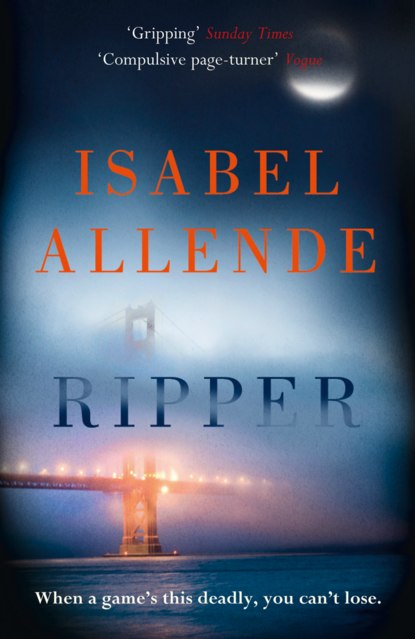По всем вопросам обращайтесь на: info@litportal.ru
(©) 2003-2024.
✖
Ripper
Настройки чтения
Размер шрифта
Высота строк
Поля
“Me neither.”
Minutes later, the details of Blake Jackson’s interview with the key witness to the Constantes murder were in Amanda’s in-box.
On the morning of November 11 at about ten fifteen, Henrietta Post, who lived on the same street as the Constantes, was out walking her dog when she noticed that the door to their place was wide open—something unusual in that neighborhood, where they’d had trouble with gangbangers and drug dealers. Henrietta rang the doorbell, intending to warn the Constantes, whom she knew well, and when no one answered she stepped inside, calling to see if anyone was home. She wandered through the living room, where the TV was blaring, through the dining room and the kitchen, then climbed the stairs—with some difficulty, given that she’s seventy-eight and suffers from palpitations. The resounding silence made her uneasy in a house usually so bustling with life; more than once she’d had to complain about the racket.
She found the children’s bedrooms empty and shuffled down the short passageway to the master bedroom, calling out to the Constantes with what little breath she had left. She knocked three times before opening the door and poking her head in. She says the bedroom was in semi-darkness, with the shutters closed and the curtains drawn, and that it was cold and stuffy in there, as though it hadn’t been aired in days. She took a couple steps into the room, her eyes adjusting to the darkness, then quickly retreated with a mumbled apology when she saw the outline of the couple lying in the bed.
She was about to creep out quietly, but instinct told her there was something strange about the stillness of the house, about the fact that the Constantes had not answered when she called and were sound asleep in the middle of a weekday morning. She crept back into the room, fumbling along the wall for the switch, and flicked on the light. Doris and Michael Constante were lying on their backs with the comforter pulled up to their necks, utterly rigid, their eyes wide open. Henrietta Post let out a strangled cry, felt a heavy jolt in her chest, and thought her heart was about to burst. She couldn’t bring herself to move until she heard her dog barking—then she walked back along the corridor, stumbled down the stairs, and, grasping at the furniture for support, tottered as far as the phone in the kitchen.
She dialed 911 at precisely 10:29; her neighbors were dead, she said over and over, until finally the operator interrupted to ask two or three key questions and tell her to stay right where she was and not touch anything, that help was on its way. Six minutes later two patrol officers who happened to be in the neighborhood showed up, followed almost immediately by an ambulance and police backup. There was nothing the paramedics could do for the Constantes, but they rushed Henrietta Post to the emergency room with tachycardia and blood pressure that was going through the roof.
At about eleven, by which time the street had been taped off, Inspector Bob Martín arrived with Ingrid Dunn, the medical examiner, and a photographer from forensic services. Bob pulled on latex gloves and followed the medical examiner upstairs to the Constantes’ bedroom. On seeing the couple lying in the bed, he initially assumed he was dealing with a double suicide, though he would have to wait for a verdict from Dunn, who was meticulously studying those parts of the bodies that were visible, careful not to move anything. Bob let the photographer get on with his job while the rest of the forensics team showed up; then the ME had the gurneys brought up, and the couple was taken to the morgue. The crime scene might belong to the San Francisco Police Department, but the bodies were hers.
The autopsy later revealed that Doris, forty-seven, and Michael, forty-eight, had both died of an overdose of heroin injected directly into the jugular vein, and that both had had their buttocks branded postmortem.
Ten minutes later the phone woke Blake Jackson again.
“Hey, Hench, I’ve got a question.”
“Amanda, that’s it—I’ve had enough!” roared her grandfather. “I resign as your henchman!”
His words were followed by a deathly silence.
“Amanda?” ventured her grandfather after a second or two.
“Yeah?” she said, her voice quavering.
“I’m just kidding. What did you want to ask?”
“Tell me about the burn marks on their butts.”
“They were discovered at the morgue when the bodies were stripped,” her grandfather said. “I forgot to mention in my notes that they found a couple of used syringes with traces of heroin on them in the bathroom, along with a butane blowtorch that was almost certainly used to make the burns. All of it wiped clean of prints.”
“And you’re saying this just slipped your mind?! That’s vital evidence!”
“I meant to put it in, but I got sidetracked. I figure that stuff was left there on purpose, as a taunt—all neatly set out on a tray and covered with a white napkin.”
“Thanks, Kabel.”
“ ’Night, boss.”
“ ’Night, Grandpa. I won’t call again, promise. Sleep tight.”
It was one of those nights with Alan that Indiana looked forward to like a blushing bride, although they had long since established a routine in which there were few surprises, and the rhythms of their sex life were those of an old married couple. They had been together for four years: they were an old married couple. They knew each other intimately, loved each other in a leisurely fashion, and took the time to laugh, to eat, to talk. Alan would have said they made love sedately, like a couple of geriatrics; Indiana felt that for geriatrics they were pretty debauched. They were happy with the arrangement—early on they had tried out some porn-movie acrobatics that had left Indiana peeved and Alan half paralyzed; they had explored more or less everything a healthy imagination could dream up without involving third parties or animals, and had finally settled on a repertoire of four conventional positions with some variations, which they acted out at the Fairmont Hotel once or twice a week as their bodies demanded.
While they waited for the oysters and smoked salmon they had ordered from room service, Indiana recounted the tragic tale of Carol Underwater, and told Alan about Danny D’Angelo’s tactless comments. Alan knew Danny, and not only because he often met Indiana at the Café Rossini. A year ago Danny had flamboyantly thrown up in Alan’s new Lexus while Alan—at Indi’s request—was driving him to the emergency room. He’d had to have the car washed several times to get rid of the stains and the stench.
It had happened that June, after the city’s annual Gay Pride March, during which Danny had disappeared. He didn’t come in to work the next day, and no one heard from him until six days later, when some guy with a Hispanic accent phoned to tell Indiana that her friend was in a bad way, ill and alone in his apartment, and to suggest she go round and look after him, or he could wind up dead. Danny lived in a crumbling building in the Tenderloin, where even the police were afraid to venture after dark, a neighborhood characterized by booze, drugs, brothels, and shady nightclubs that had always attracted drifters and delinquents. “The throbbing heart of Sin City,” Danny called it with a certain pride, as though those living there deserved a medal for bravery. His apartment block had been built in the 1940s for sailors, but over time it had degenerated into a refuge for the destitute, the drugged-up, and the diseased. More than once Indiana had come by to bring food and medication to her friend, who often ended up a wreck after some sleazy binge.
When she got the anonymous call, Indiana once again rushed to Danny’s side. She climbed the five flights of stairs scrawled with graffiti, four-letter words, and obscene drawings, past the seedy apartments of drunkards, doddering lunatics, and rent boys who turned tricks for drugs. Danny’s room was dark and stank of vomit and patchouli oil. There was a bed in one corner, a closet, an ironing board, and a quaint little dressing table with a satin valance, a cracked mirror, and a vast collection of makeup jars. There were a dozen pairs of stilettos and two clothes racks from which the feathery sequined dresses Danny wore as a cabaret singer hung like ugly, lifeless birds. There was little natural light; the only window was caked with twenty years’ worth of grime.
Indiana found Danny sprawled on the bed, filthy and still half dressed in the French maid’s outfit he had worn to Gay Pride. He was burning up and severely dehydrated, a combination of pneumonia and the lethal cocktail of alcohol and drugs he had ingested. Each floor of the building had only one bathroom shared by twenty tenants, and Danny was too weak for Indiana to drag him there. He didn’t respond when Indiana tried to get him to sit up, drink some water, and clean himself up. Realizing she could not deal with him on her own, she called Alan.
Alan was bitterly disappointed to realize Indiana had called him only as a last resort. Her father’s car was in the shop, probably, and that son of a bitch Ryan Miller was off traveling somewhere. The tacit agreement whereby their relationship was limited to a series of romantic encounters suited him, but it somehow offended him to realize that Indiana could happily exist without him. Indiana was constantly broke—a fact she never mentioned—but whenever he offered help, she dismissed the idea with a laugh. Instead she turned to her father for help, and—though he had no proof—Alan was convinced she was prepared to accept help from Miller. “I’m your lover, not some kept woman,” Indiana would say whenever he offered to pay the rent on her consulting rooms or Amanda’s dentist’s bill. He’d wanted to buy her a Volkswagen Beetle for her birthday—a lemon-yellow one, or maybe that deep nail-polish red she loved—but Indiana dismissed the idea: public transport and her bicycle were more environmentally friendly. She refused to allow him to open a bank account in her name or give her a credit card, and she didn’t like it when he gave her clothes, thinking—rightly—that he was trying to make her over. Indiana found the expensive silk and lace lingerie he bought for her faintly ridiculous, but to make him happy she wore it as part of their erotic games. Alan knew that the moment his back was turned, she would give it to Danny, who probably appreciated it more.
Although Alan admired Indiana’s integrity, he was upset that she did not seem to need him. Being with this woman who was happier to give than to receive made him feel small, made him feel cheap. In all their years together, she had rarely asked for his help, so when she called from Danny’s apartment, he rushed to her side.
The Tenderloin district was notorious for Filipino, Chinese, and Vietnamese gangs, for robbery, assault, and murder; Alan had hardly ever set foot there, even though it was in the heart of San Francisco, only a few blocks from the banks, stores, and expensive restaurants he frequented. He still harbored a romantic, antiquated notion of the district: to him it was 1920 there, and the place was still full of gambling dens, speakeasies, boxing rings, brothels, and sundry other lowlife. He vaguely remembered that Dashiell Hammett had set one of his novels in the Tenderloin—maybe The Maltese Falcon. He did not realize that after the Vietnam War, the area had been flooded with Asian refugees drawn by cheap rents and the proximity to Chinatown; that nowadays up to ten people lived in the one-bedroom apartments. Seeing the hobos sprawled on the sidewalk with their sleeping bags and their overstuffed shopping carts, the shifty men hovering on street corners, and the toothless, disheveled women muttering to themselves, Alan realized it was probably best not to park on the street.
It took him a while to find a secure parking lot, and longer still to find Danny’s building; the street numbers had been worn away by time and weather, and he could not bring himself to ask for directions. When he finally did stumble on the place, it was even seedier and more run-down than he had expected. Drunks, drifters, and shady-looking guys lurked in the doorways or shambled along the hallways, and he worried that some thug might jump him. He walked faster, careful to look no one in the eye, suppressing the urge to hold his nose, acutely aware of how ridiculous his Italian suede shoes and his Barbour jacket must look in a place like this. The five-floor climb up to Danny’s room seemed fraught with danger, and when he finally got there, the reek of vomit stopped him in the doorway.
By the light of the bare bulb dangling from the ceiling he could see Indiana leaning over the bed, washing Danny’s face with a damp cloth. “We have to get him to the hospital, Alan,” she said quickly. “I need you to put a shirt and some pants on him.” Alan felt his throat heave and had the urge to retch, but he could not be a coward and give up, not now. Careful not to get dirty, he helped Indiana to wash and dress the delirious man. Danny was skinny, but in his present state he seemed heavy as a horse. Between them they managed to get Danny on his feet and half carried, half dragged him along the hallway to the stairwell, then step by step down to the ground floor to sneering looks from the other tenants. Outside, they sat Danny down on the sidewalk between a couple of garbage cans, and Indiana stayed with him while Alan ran the few blocks to his car. It was while Danny was spraying the backseat of the gold Lexus with vomit that it occurred to Alan they could have called an ambulance. This thought had not even crossed Indiana’s mind; calling an ambulance would cost a thousand dollars, and Danny had no medical insurance.
Danny D’Angelo spent a week in the hospital while doctors struggled to get his pneumonia, stomach infection, and blood pressure under control. Then he spent a second week staying with Indiana’s father, who reluctantly played nursemaid until Danny was strong enough to manage on his own and go back to his rathole and his job. Blake Jackson barely knew Danny D’Angelo at the time, but he collected the man from the hospital because his daughter asked him to, and gave him a bed and took care of him for the same reason.
Alan Keller had first been attracted by Indiana Jackson’s looks: a healthy, well-fed mermaid. Later he was captivated by her optimistic personality; in fact, he liked her precisely because she was the polar opposite of the skinny, neurotic women he usually dated. He would never have admitted that he was “in love”—that would be tasteless, he felt no need to put a name on what he felt. It was enough that he enjoyed the carefully prearranged, slightly predictable times they spent together. During the weekly sessions with his analyst, who, like most therapists in California, was a New York Jew and a practicing Zen Buddhist, Alan had acknowledged that he was “very fond” of Indiana, a euphemism that allowed him to avoid using the word passion, something he appreciated only in opera, where violent emotions shaped the destinies of tenor and soprano. Indiana’s beauty inspired in him an aesthetic pleasure more constant than sexual desire, her freshness moved him, and her admiration for him had become an addictive drug he would find difficult to give up. And yet he was constantly reminded of the gulf that separated them. She was from a lower class. The curvaceous body and shameless sensuality he so loved in private was embarrassing when they were in public. Indiana ate with relish, sopped up sauce with her bread, licked her fingers, and always ordered second helpings of dessert, to Alan’s astonishment—he was used to the women of his own class who thought anorexia was a virtue and death was preferable to the terrible shame of a few extra pounds. You could tell a woman was rich if you could see her bones. Though Indiana was far from overweight, Alan knew his friends would not appreciate that unsettling beauty she had, like a Flemish milkmaid’s, nor the bluntness that sometimes bordered on vulgarity, so he avoided taking her to places where they might run into anyone he knew. On those rare occasions when this was likely—at a concert or at the theater—he would buy her a suitable dress and ask her to pin her hair up. Indiana always acquiesced with the playfulness of a child dressing up, but over time these tasteful little black dresses began to constrict her body and sap her soul.
Alan’s most thoughtful present had been the weekly flowers—an elegant ikebana arrangement from a florist in Japantown—delivered punctually to her treatment room at the Holistic Clinic every Monday by a young man with hayfever who wore gloves and a surgical mask. Another extraordinary gift had been a gold pendant—an apple encrusted with diamonds—to replace the studded collar she usually wore. Every Monday, Indiana waited impatiently for her ikebana; she loved the minimal arrangements—a gnarled twig, two leaves, a solitary flower. The diamond-encrusted apple, however, she had worn only once or twice to please Alan before storing it in the velvet case in her dressing-table drawer, since in the voluminous topography of her cleavage it looked like a stray insect. Besides, she had once seen a documentary about blood diamonds and the horrifying conditions in African mines. In the early days, Alan had tried to change her wardrobe, to teach her to be more respectable, instruct her in etiquette, but Indiana had obstinately refused. Given how much work it would take for her to become the woman he wanted, she argued, he would be better off looking for a woman more to his taste.
With his urbane sophistication and his aristocratic English looks, Alan was something of a catch. His female friends considered him the most eligible bachelor in San Francisco because, aside from his charm, he was rumored to be extremely wealthy. The precise extent of his fortune was a mystery, but he lived well, though not to excess: he rarely spent extravagantly and wore the same shabby suits year in, year out; not for him the quirks of fashion or the designer labels worn by the nouveau riche. Money bored him precisely because he had always had it. Thanks to his family name, maintaining his social standing required no effort on his part, and he had no need to worry about the future. Alan lacked the entrepreneurial acumen of his grandfather, who had made the family’s fortune during Prohibition; the pliable morality of his father, who had added to it through shady dealings in Asia; and the visionary greed of his siblings, who maintained it by speculating on the stock market.
Here in his suite at the Fairmont, amid the honey-colored silk curtains, the antique, intricately carved furniture, the crystal lampshades, and the elegant French lithographs, Alan shuddered as he thought back to that unpleasant episode with Danny D’Angelo, which had further reinforced his belief that he and Indiana could never live together. He had no patience with promiscuous people like Danny, with ugliness and poverty, nor with Indiana’s indiscriminate generosity, which at first had seemed like a virtue, but over time came to be an irritation. That night, as Indiana wallowed in the jacuzzi, Alan sat in an armchair, still dressed, holding a glass of chilled white wine—a sauvignon blanc produced in his own vineyard solely for his pleasure, and that of a few friends, and three exclusive San Francisco restaurants—while he waited for room service to arrive.
From where he sat, he could see Indiana’s naked body in the water, her unruly shock of curly blond hair pinned on top of her head with a pencil, stray wisps framing her face. Her skin was flushed, her cheeks red, and her eyes sparkled with the pleasure of a little girl on a merry-go-round. Whenever they met at the hotel, the first thing she always did was turn on the hot tub, which seemed to her the height of decadence and luxury. Alan never joined her—the hot water would only raise his blood pressure, and his doctor had warned him to be careful—preferring to watch her from his armchair as she recounted some story involving Danny D’Angelo and some woman called Carol, a cancer victim who had joined the ranks of Indiana’s weird friends. He could not really hear her over the swirling water. Not that he was particularly interested in the story; he simply wanted to gaze at her body reflected in the large beveled mirror behind the bathtub, waiting for the moment the oysters and smoked salmon would arrive, when he would uncork a second bottle of sauvignon and she would emerge from the water like Venus born out of the sea; then he would swathe her in a towel, wrap his arms around her, nuzzle her warm, wet, youthful skin. And so it would begin, the slow, familiar dance of foreplay. This was what he loved most in life: anticipated pleasure.
Saturday, 7 (#ulink_8fe41877-2ab0-55db-9c49-36effb4f7ab8)
The Ripper players, including Kabel—a humble henchman with no role in the game beyond carrying out his mistress’s orders—had agreed to meet up on Skype. At the appointed time, they were all sitting in front of their computers, with the games master holding the dice and the cards. For Amanda and Kabel in San Francisco, and for Sherlock Holmes in Reno, it was 8:00 p.m.; for Sir Edmond Paddington in New Jersey and Abatha in Montreal, it was 11:00 p.m.; and for Esmeralda, who lived in the future, in New Zealand, it was already 3:00 p.m. the next day. When the game first started, they had played in a private text-based chat room, but when—at Amanda’s suggestion—they started to investigate real crimes, they decided to use video chat. They were so used to dealing with each other in character that every time they logged on there would be an astonished pause when they saw each other in person. It was difficult to see this boy confined to a wheelchair as the tempestuous gypsy Esmeralda, to imagine the black kid in the baseball cap as Conan Doyle’s celebrated detective, or this scrawny, acne-ridden, agoraphobic teenager as a retired English colonel. Only the anorexic girl in Montreal looked a little like her character—Abatha, the psychic, a skeletal figure more spirit than substance. They said hello to the games master and aired their concern that they had made little progress in the Ed Staton case during the previous session.
“Let’s discuss what’s come up in the Case of the Misplaced Baseball Bat before moving on to the Constantes,” suggested Amanda. “According to my dad, Ed Staton made no attempt to defend himself. There were no signs of a struggle, no bruises or contusions on the body.”
“Which could mean he knew his killer,” said Sherlock Holmes.
“But it doesn’t explain why Staton was kneeling or sitting when he was shot in the head,” said the games master.
“How do we know that he was?” asked Esmeralda.
“From the bullet’s angle of entry. The shot was fired at close range—about fifteen inches—and the bullet lodged inside the skull; there was no exit wound. The weapon was a small semiautomatic pistol.”
“That’s a pretty common handgun,” interrupted Colonel Paddington, “small, easy to conceal in a pocket or a handbag; it’s not a serious weapon. A hardened criminal would use something more lethal than that.”
“Maybe, but it was lethal enough to kill Staton. Afterward the murderer pitched him over the vaulting horse and . . . well, we all know what he did with the baseball bat. . . .”
“It can’t have been easy to get his pants down and position him over the vaulting horse; Staton was tall, and he was heavy. Why do it?”
“A message,” murmured Abatha. “A sign, a warning.”
“Statistically, a baseball bat is often used in cases of domestic violence,” said Colonel Paddington in his affected British accent.















